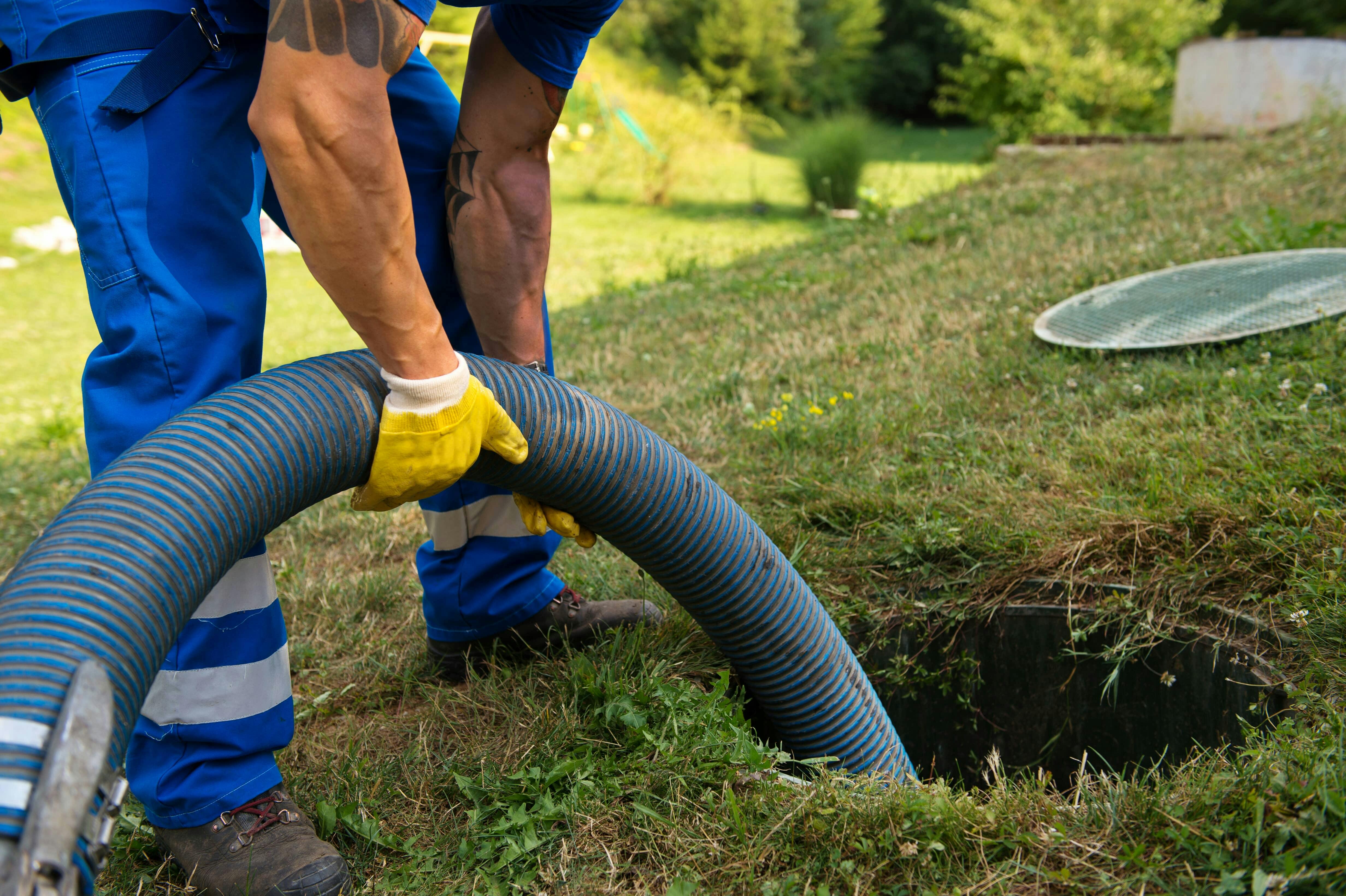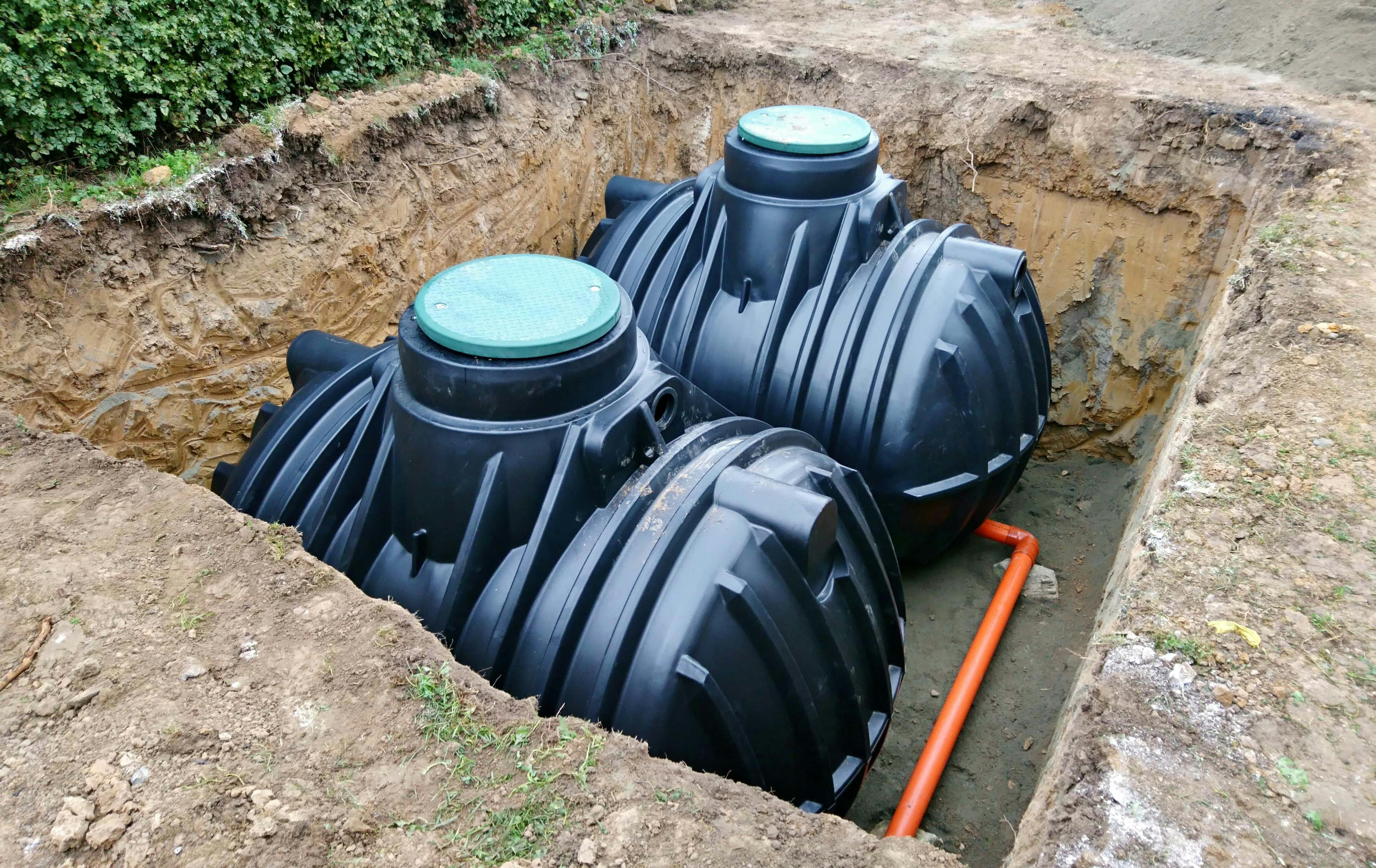If you own a home with a septic tank or are thinking about buying one, it’s important to understand how this system functions on your property. What the pros and cons of having a septic tank are, where in South Florida you might have one, and what buyers should know about septic tanks before purchasing a home with one.
What Is a Septic Tank?
A septic tank is a watertight container buried somewhere beneath your property. Typically made from, concrete, fiberglass, or polyethylene, this tank’s job is to hold wastewater and waste that comes from your home. If it goes down a drain, it enters your septic tank – everything from your kitchen sink to your showers and toilets.
Once wastewater enters the septic tank, solids separate to form sludge at the bottom while oil and grease separate and float to the top as scum. Wastewater itself is released into the drain field, where it gets purified by the soil before reaching the water table. Some of the sludge in the tank will decompose over time but pumping sludge and scum every 2-5 years is necessary for maintaining a well-functioning septic system.

What Are the Pros and Cons of a Septic Tank?
Septic tank systems come with several pros and cons that should be considered before purchasing a home with one or connecting a home to the city’s sewer system.
Pros of a septic tank system include the following:
- Good for areas where accessing a sewer is too expensive or impossible
- Relatively cheap to install and maintain
- Reduced water bill, eliminated sewage costs
Cons of a septic tank system include the following:
- Items that can’t be biologically broken down can never get flushed into the tank (hair, dental floss, grease, fat, diaper wipes, paper towels, etc.)
- Bleach and other harsh chemicals can’t be used to clean
- Pumping costs required every 2-5 years
Do All Homes Have Septic Tanks?
Throughout the U.S. only around 20% of homes have septic tanks. Septic tanks are most commonly found in rural areas where there are large amounts of land separating neighbors. However, here in south Florida, they can be found in nearly every city. There are no set parameters as to define where to look for them, but they are typically found in lower income areas where people prefer not to incur the additional cost of having a city sewer.
What Should Prospective Homeowners Know about Septic Tanks before Buying?
If you’re thinking about buying a home with a septic tank system, here are some things you should know first:
- A septic system inspection is required before a title can be transferred.
- Septic tanks can last 40 years or longer, so know how old the tank is before buying
- You may have to replace the system at some point during your homeownership, which can cost upwards of $7,000 for a conventional system. Alternatives may cost more.
- Find out if there’s ever been a history of the septic tank system failing or needing repairs
- Septic tanks are often buried under concrete and not maintained, A septic tank can only be neglected for so long before permanently damaging the drain field, in such a case the only solution is to dig up the entire yard (Approx. 2000 SF depending on number of bedrooms) and replace it. This is a very costly project.

Want to Learn More? Contact Our Team.
If you want to learn more about septic tank systems, sewer systems, and any of the other ways your home deals with wastewater, don’t hesitate to get in touch with our team at Watermen Plumbing.
For more information, contact us online or call (954) 997-5797 today.


